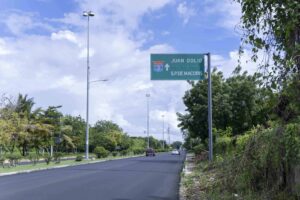The General Assembly of the UN approved this Tuesday a resolution about the “Day International of Afro-descendant Women and Girls” (July 25) promoted by Colombia and that will give “visibility” to its transformative efforts, according to what the Colombian vice president told EFE,
“This is very important for me and for the Government and, of course, for the women Afro-descendants and girls, as it allows them to strengthen their leadership, empowerment and give visibility to the efforts made by women. women Afro-descendants “to transform the stories of intersectional, racial and gender violence that they suffer,” said the Minister of Equality in a later interview.
Presenting the text at the plenary session, Márquez noted that the women Afro-descendants “They remain invisible as political subjects, suffer higher levels of poverty than the rest of the population, are underrepresented in decision-making, are more vulnerable to human rights violations, and are erased from official statistics.”
He also highlighted the joint work of Colombia with Brazilwhose “fundamental role” in the advancement of the racial justice in the world, and applauded that every July 25 many countries will organize events and agendas to recognize the women and girls Afro-descendantsa recognition that “must be translated into public policies.”
Colombia Now works with Brazil
Marquez explained that Colombia Now works with Brazil and other countries to promote a second Decade International Afro-descendantsince the first one, proclaimed by the General Assembly in 2013, ends at the end of the year.
“Colombia adds to say: We also want to be part of that construction,” said Márquez, who recalled that as an activist he has “led that agenda of reparations and racial justice“, and belongs to a Government with an agenda that puts these issues “at the center.”
“Ten years have passed since the Decade of People of African Descent was declared, with progress, challenges and issues still to be met in order to restore the dignity of the Afro-descendant population in the world”
Colombian politics, which this Tuesday had bilateral meetings with representatives of Brazil and South Africa on his visit to the UNhe said for a second Decade, Colombia proposes an “approach of racial justice and historical reparations for the effects of colonialism, slavery and racism.”
- The resolution This Tuesday was adopted after some controversy, because South Africa proposed an amendment to the draft to mention the Statement Durban Declaration against racism and xenophobia in 2001, a change that generated divisions but was approved with 61 votes in favor, 78 abstentions and one vote against, from Israel.
- For Márquez, the amendment proposed by South Africa “strengthens the same resolution“.



